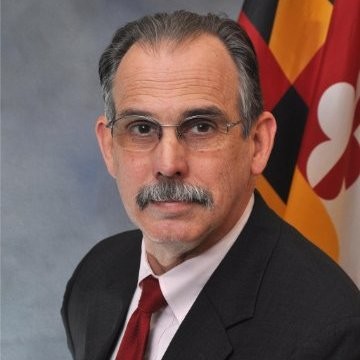Appointments Secretary Denies Allegations of Politics in State Hiring

Republican Gov. Lawrence J. Hogan Jr.’s appointments secretary told a joint legislative committee on Tuesday that the administration has appointed more Democrats than Republicans to state boards and commissions ― and that the Appointments Office is less involved in state hiring than some lawmakers believe.
Appointments Secretary Christian E. Cavey said that so far in 2019, Hogan has appointed 581 Democrats, 499 Republicans and 138 people with other political affiliations to boards and commissions. Fifty-six percent of appointees have been men, 44 percent were women and 30.5 percent were racial minorities, Cavey told three members of the Joint Committee on Fair Practices and State Personnel Oversight.
And while lawmakers in the Democratically controlled General Assembly have expressed concern about political influence in hiring, Cavey said that only 165 at-will state government employees were removed or resigned from state government positions since Hogan took office, half of which were part of the office of governor. In contrast, 455 at-will employees were removed within the first 12 months of the previous administration, Cavey said.
The Appointments Office will perform background checks on potential state employees when an agency requests it and also passes on resumes of potential employees who have applied to positions on boards and commissions, but those tasks are in addition to agency hiring procedures and are not a requirement.
Still, Sen. Clarence K. Lam (D-Howard), Senate chairman of the committee, probed for information about the Appointments Office’s role in state hiring, reading from text messages and other communications he’s received over the last few years outlining concerns that the appointments office was involved in hiring decisions for state employees.
Last year, state officials said the Appointments Office played a role in vetting 346 of the 771 people hired by state agencies at Grade 19 or higher between July 1, 2017, and Sept. 27, 2018.
On Tuesday, Cavey did not have exact figures on how often his office vets job applicants for state agencies, but said it has decreased over time.
Cavey said that when he first became appointments secretary in December 2016, the office was handling more requests for vetting job applicants from state agencies than it does now. Recently, the office has received only a few requests to vet job applicants from other agencies each month, Cavey said.
While the Appointments Office vetting process only includes searches of public websites and databases that agencies could conduct themselves, the office has still found 22 people who had “unacceptable criminal or civil law problems,” including domestic violence, child abuse, handgun and robbery cases in the past year, Cavey said.
Lam expressed concern that state law specifies the office should not be involved directly or indirectly in hiring for non-political positions. He asked how these vetting procedures don’t violate that.
Cavey said his office doesn’t try to influence whether someone should be hired and does not follow up to see if they are, but may tell agencies to dig a little deeper into an applicant’s background.
“We just vet people upon request. And then we report simply: thumbs up or not,” Cavey said.
Lam also expressed concern that the Appointments Office will sometimes interview applicants, including asking them the name of their spouse and their spouse’s occupation, which could reveal information at odds with equal opportunity hiring practices. Cavey said the questions are asked to ensure that employees with obvious conflicts of interest aren’t hired.
For the last two years, Lam has introduced legislation that would address the Appointments Office role in hiring. In 2019, the General Assembly passed a bill that was vetoed by Hogan.
The bill would require an annual report to the committee on the number of referrals made by departments to the Appointments Office, reasons for the referrals, the type of information the Appointments Office forwards to state agencies, and how often state employees are filling out the Appointments Office questionnaire form, among other things.
The bill also would add language clarifying restrictions on the Appointments Office’s role in state hiring and establish a hotline to field complaints.
In vetoing the bill, Hogan decried it as an attempt to usurp power from the executive branch. Hogan also wrote in a veto letter that the bill would have a “chilling effect” on the state’s ability to recruit qualified candidates.
“Personnel matters are confidential by law for a reason. Applicants for jobs trust their potential employer to be discreet and professional in every way,” Hogan wrote. “Having every movement logged and reported will have a detrimental effect on applicants for positions that affect every Marylander.”
Lam said he anticipates a veto override vote in the next General Assembly session. He noted that three Democrats were absent on the date of the original vote, which means a full complement of Democrats in the chamber could be enough to secure an override in 2020.
Lam said the legislation is not aimed at Hogan’s administration in particular.
The Joint Committee on Fair Practices and State Personnel Oversight stems from an earlier committee formed after an investigation by lawmakers that concluded that dozens of state employees had been fired solely for their political beliefs under former Gov. Robert L. Ehrlich Jr. (R). Hogan was Ehrlich’s appointments secretary.
“This is not directed at one administration or another,” Lam said. “Regardless of administration or who the governor is, our responsibility is to ensure the best state workforce possible.”
Editor’s Note: This story was updated to correct statistics on the political, gender and racial diversity of Gov. Lawrence J. Hogan Jr.’s appointees. The information is for 2019, not his entire term.




 Creative Commons Attribution
Creative Commons Attribution